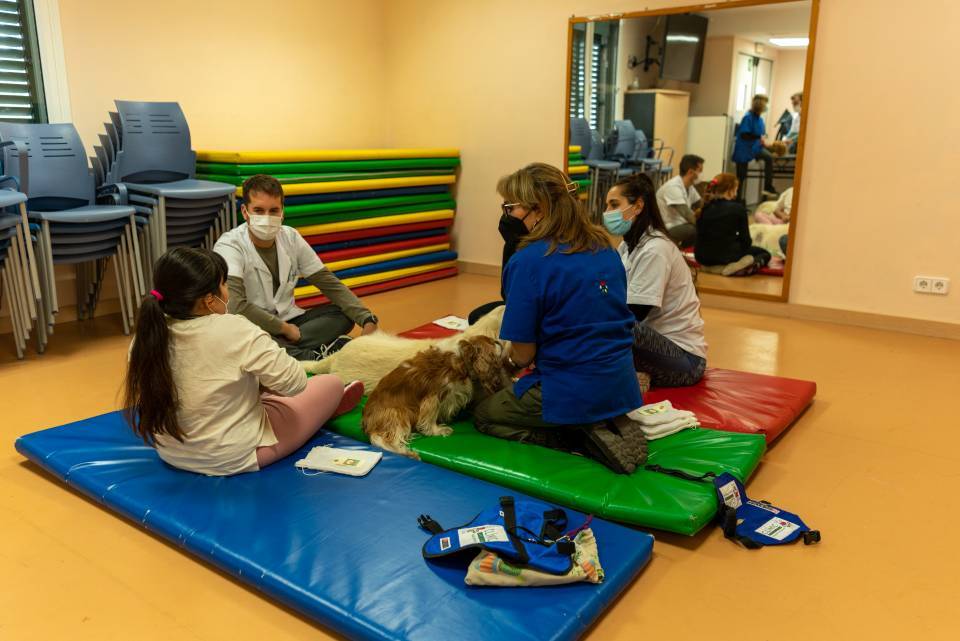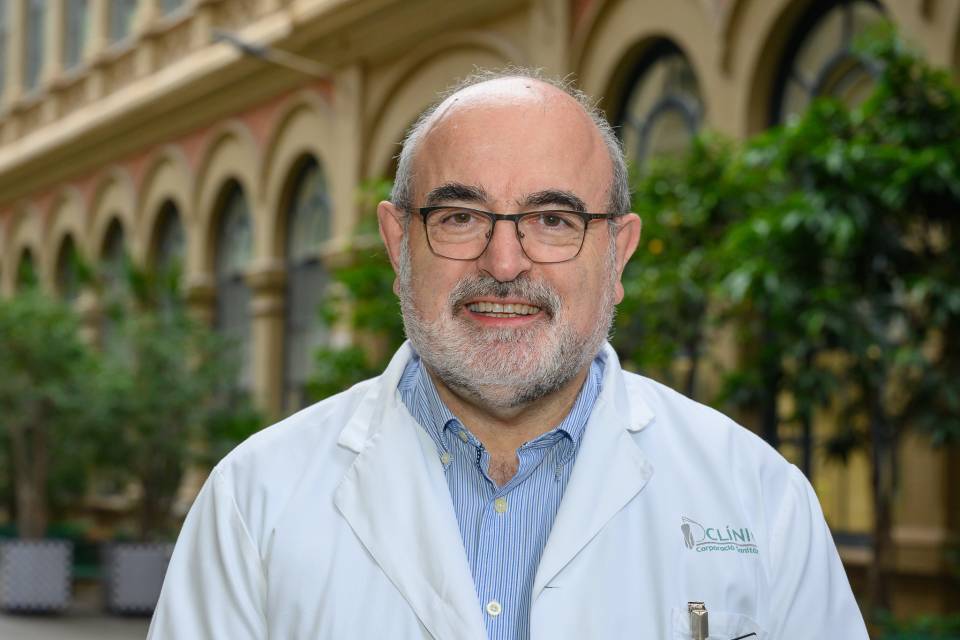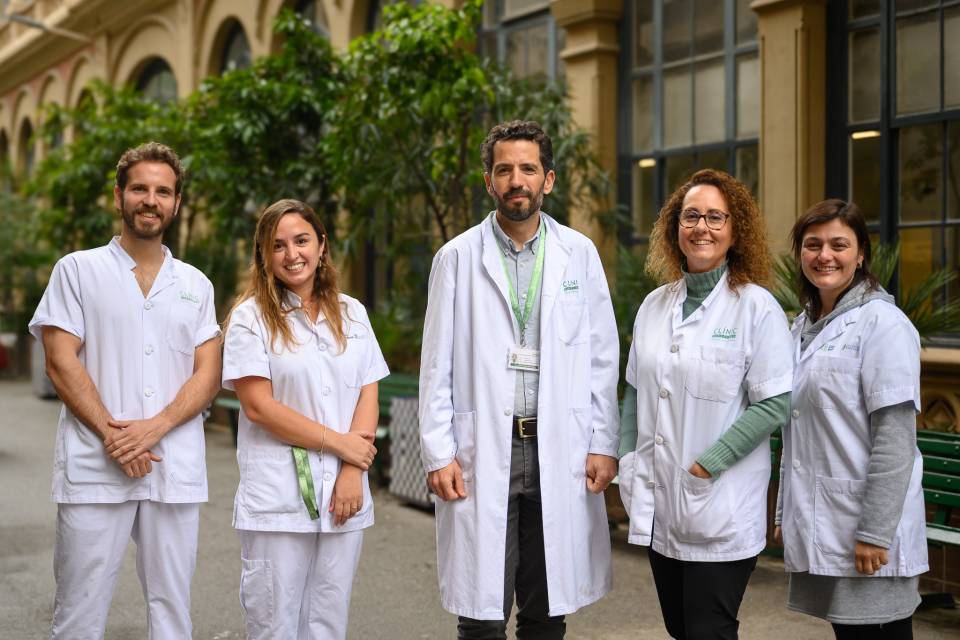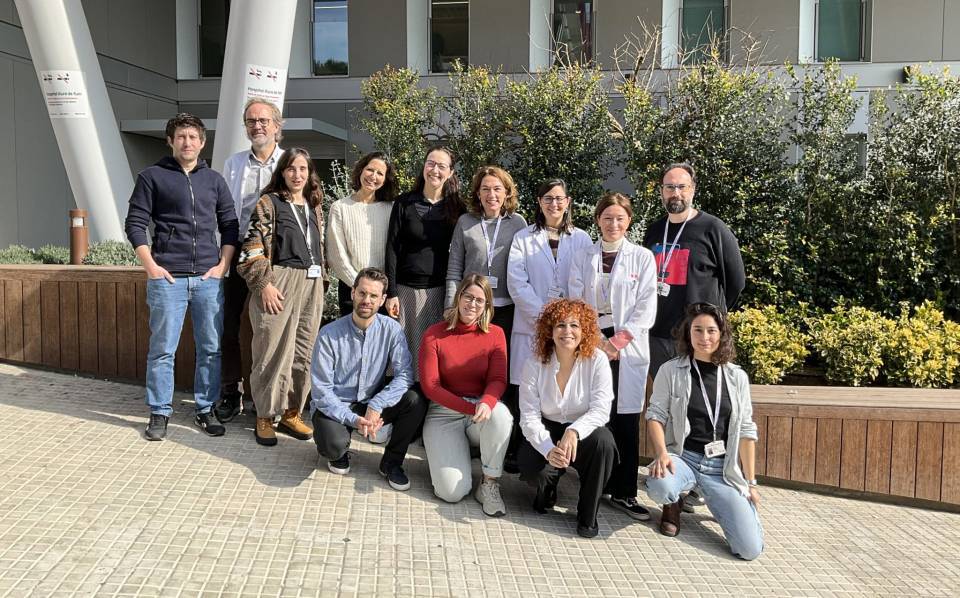Barcelona, 16 February 2023. Researchers from the Hospital Clínic-IDIBAPS have published a study in which they observed the benefit of dog therapy as complementary treatment at the Day Hospital for child and adolescent mental health. Dog-assisted therapy acts as a catalyst to improve therapy with users under 13 years old. The project was carried out with professionals from the Canine-Assisted Therapy Centre (CTAC), specialists in this type of animal therapy, and thanks to the collaboration of Purina and "la Caixa" Foundation through CaixaBank.
The study was led by Elías Guillén, a mental health nurse specialist and principal investigator of the study, along with Dr. Astrid Morer, psychiatrist and researcher in the IDIBAPS Child and Adolescent Psychiatry and Psychology group and at the Biomedical Research Networking Centre for Mental Health (CIBERSAM). Both form part of the Child and Adolescent Psychiatry and Psychology Service at the Hospital Clínic Barcelona led by Dr. Luisa Lázaro. "The study indicates to us that the introduction of dogs in therapy is a facilitator, an emotional link between the therapist and the child, and they act as catalysts for the therapy,” says Dr. Astrid Morer.
“The results observed are very positive: we have seen an improvement in attendance rates, we see that the children are calmer and it is easier to work on the goals we set with them," explains Elías Guillén. The number of emotional outbursts and amount of agitation observed in the study was significantly lower on the days when there was dog therapy, approximately three times lower, compared with the days without dog therapy. “We saw that around 75% of the outbursts took place on the days without dog therapy, whilst only 25% occurred on the days with a dog,” describes Elías Guillén. Attendance at the centre was also higher on the days with dog-assisted therapy, compared to the days without the animals.
“Moreover, the presence of the dogs facilitates the children’s self-control and social interactions”, adds Elías Guillén. The results of the questionnaires filled in by the professionals, which establish the level of the patients’ self-control and social skills, indicate a significant improvement in the patients after treatment. However, the same questionnaires filled in by the children’s parents or legal guardians did not reveal any significant differences after treatment. So, the therapy appears to be beneficial and demonstrates results within the Day Hospital setting.
The researchers highlight the fact that the patient’s predisposition to change is different when the dog is there from when it is not. “It makes our work easier. The day the dogs come here the atmosphere is different and this allows us easier access to the child, there is less agitation, everything is much easier,” explains Elías Guillén. In the interviews with professionals conducted in this study, it was noted that dog therapy improves the patient's emotional self-regulation and facilitates the work of the therapists, despite the uncertainty shown by the therapists due to the lack of familiarity with this type of therapy.
The sessions with dogs were incorporated into the dynamics of the Day Hospital. Sessions were held on a specific day of the week, lasting 45 minutes per patient, for 2 years (except for the 4 months of lockdown due to the pandemic). Different individual, group and family sessions were carried out as well as therapeutic visits and support for other procedures. “It is incredible how the children agree to perform or face situations with the dog, for example a blood test, which they would not do without the animal,” says Dr. Morer. Animal-assisted therapy uses trained animals to help the person face certain situations or achieve the therapeutic goals set in a complementary manner to other clinical treatments.
The children who took part in the study had autism spectrum disorder (without very severe symptoms), behavioural disorders or anxiety. Two analyses were carried out in the study. On the one hand, a quantitative analysis was performed on the treatment given to 23 children under 13 years old. This quantified the number of emotional or behavioural outbursts and their attendance at the Day Hospital. Two questionnaires were also filled in by the child's parents or legal guardians and the health professionals. These validated questionnaires ‒ Self-Control Rating Scale (SCRS) and Social Responsiveness Scale-2 (SRS-2) ‒ measure the child’s self-control and social skills. On the other hand, a qualitative analysis was performed of the impact of the dog-assisted therapy through 12 interviews with mental health professionals who had contact with this type of therapy.
Mark El-Khoury, Director General of Purina Spain, comments that, “At Purina we are convinced of the benefits that living with pets brings to society and, for this reason, since 2015 we have been conducting research that allows us to continue to gather evidence related to the bond between humans and animals. This study is further proof of the importance of continuing research in this field to help more and more people.” And he concludes, “animals have a lot to offer us, and we want to continue to show this in all our actions.”
Taking into account these favourable results, the aim is to extend the study to include children between 13 and 17 years of age, who attend the Day Hospital in the same unit. This extension will be possible thanks to the collaboration of the “la Caixa” Foundation.
The following people also participated in the study: Laia Sastre, Pilar Santamarina-Pérez, Laura Hermida, Marta García, Miguel Romero, Yeray Pastor, Cristina Diaz, Soledad Romero and Laura Real, of the Child and Adolescent Psychiatry and Psychology Service; and Eva Doménec and Francesc Ristol, directors of the Dog-Assisted Interventions – CTAC Method programme applied in hospitals.
Study reference: The Benefits of Dog-Assisted Therapy as Complementary Treatment in a Children’s Mental Health Day Hospital. Guillén Guzmán E, Sastre Rodríguez L, Santamarina-Pérez P, Hermida Barros L, García Giralt M, Doménec Elizalde E, Ristol Ubach F, Romero Gonzalez M, Pastor Yuste Y, Diaz Téllez C, Romero Cela S, Real Gisbert L, Salmerón Medina M, Ballesteros-Urpi A, Morer Liñan A. Animals. 2022; 12(20):2841. https://doi.org/10.3390/ani12202841




